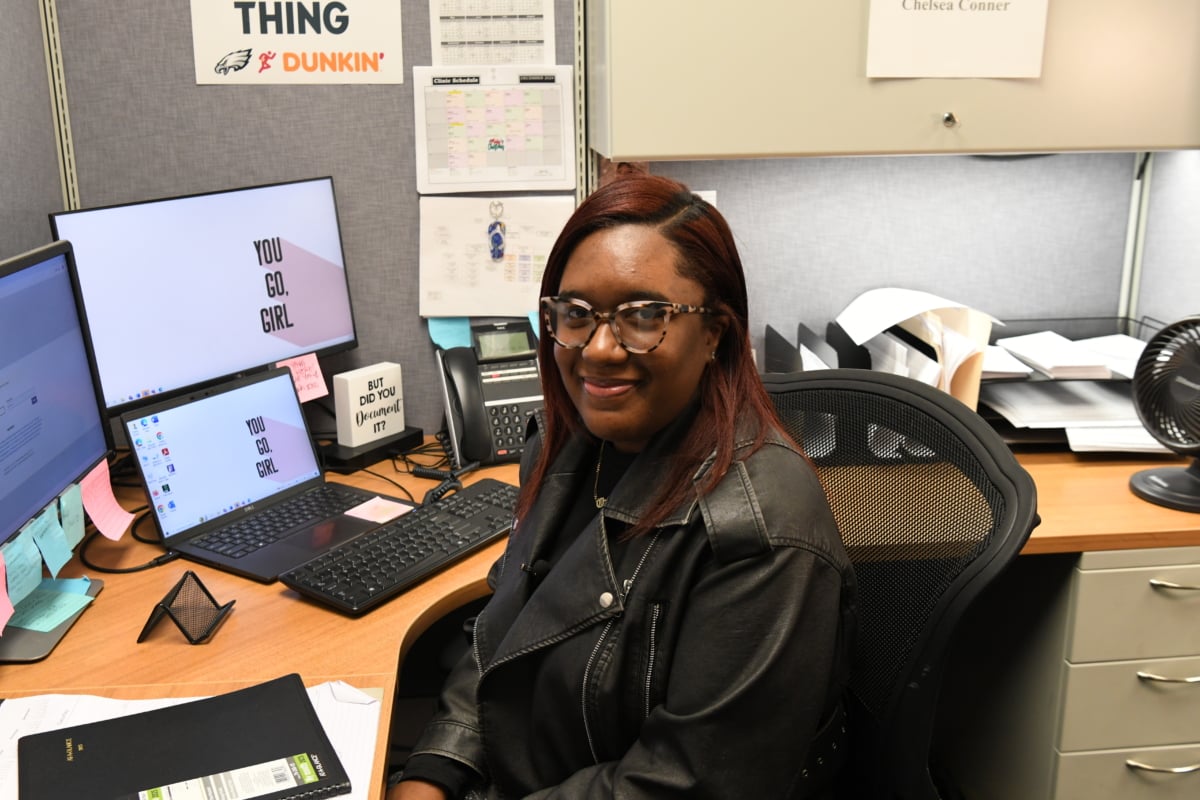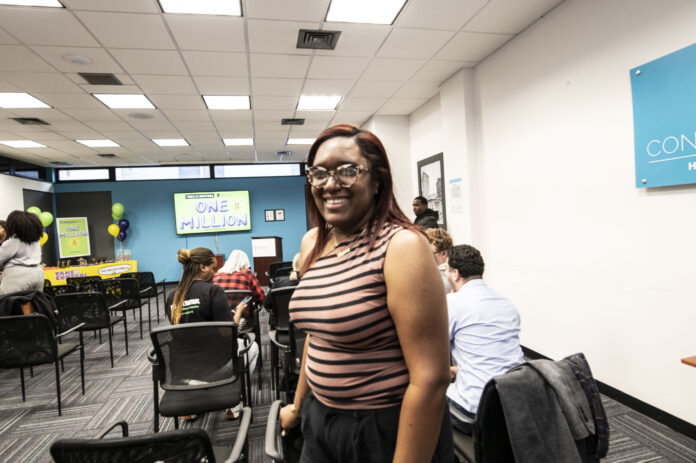
The birthplace of the nation. Championship sports teams. Cheesesteaks. Philadelphia is recognized and respected for many great reasons. But in recent years, the city has also drawn attention for its high rate of sexually transmitted infections. Sexually transmitted diseases are also rising. However, in true Philly fashion, the city Department of Public Health has forces at work to shine a positive spotlight on the city by demonstrating effective strategies to lower STI and STD rates and, therefore, improve citywide sexual wellness.
Among these forces is one that can be termed “small but mighty.” It consists of about 10 Disease Intervention Specialists working out of the Department of Health’s STD Control Program. One person at a time, these DIS fight the spread of STIs across the city. However, while DIS take a one-on-one approach, their progress is measured not in steps, but in strides.
“I think of it as engaging with one person to help three,” said Ryan Lazauskas, Disease Intervention Specialist. “Then when we engage with those three, it just continues to branch out. We impact such a large number of people with the work we do.”
“Intervention” may cause people to think along the lines of family or friends confronting a loved one engaging in addictive behavior. But Chelsea Conner, Level 3 Disease Intervention Specialist and Prison Liaison, explains what Philadelphia DIS do is very different.
“Sexual activities and sexual health are highly personal issues that require discretion and establishing trust,” said Conner, whose territory covers West and South Philadelphia. Maintaining confidentiality while engaging with the public is, by law, the first and most important step.
“Our work isn’t about casting any judgment or stopping behavior. It’s about giving individuals education, resources and support that allow them to make the best decision for their future. This is how DIS make sure people infected with STIs aren’t re-infected and how we help stop STIs from spreading throughout the city,” Conner said.
A main activity for DIS is engaging with Philadelphians who test positive for an STD – positive STI results must be reported to the Department of Health. DIS spend time in “clinic days,” during which they may talk, and offer resources, to anyone who has tested positive or has come in for treatment or who has brought their sex partner in for testing. During “field days,” DIS engage with individuals in their homes or at work or any place that individual feels comfortable. Wherever DIS interact with individuals, the overall goals are the same:
• Ensure they have the knowledge, resources and support to be treated and improve their sexual health
• Obtain information necessary for DIS to contact all the individual’s sexual partners
• Encourage the individual to make choices that will prevent any further spread of their STIs
Using the information obtained from the first individual with a positive result, DIS will connect with their sex partners and repeat the process. Confidentiality is key for DIS, who travel in non-branded vehicles and never reveal the names or any other information that could identify the person who tested positive.
Although Philadelphia’s STD Control Program and the DIS initiative had been established for about two decades, Conner says the game has changed, even in the three years she’s been a DIS. COVID lockdowns, for example, drove a rise in congenital syphilis cases. STD Control implemented monthly meetings, focused on reaching pregnant women who tested positive for syphilis, and developed best practices for ensuring women and their partners were treated early in pregnancy. This is done both to ensure the mother is not reinfected and to prevent syphilis and its complications from spreading to babies during pregnancy. Consequently, congenital syphilis rates are improving in the city.
Conner also shared she’s seen growth in their ability to reach patients and partners but that the way people meet sexual partners today can present challenges.
“Sometimes the person really wants to help us connect with their partners but doesn’t have a way of contacting them. Maybe they met using an app that doesn’t disclose that information. Maybe they did exchange information but if things ended quickly or didn’t go well, it’s easily deleted. People usually are grateful for our efforts and want to help. But they can decline our services, so it’s important that we show compassion, maintain their confidentiality and never pressure them to accept our support.”
Heeding the Call
The program is always looking for new DIS to join the effort and further diversify the group so it can connect with individuals in the most appropriate way possible.
“The more DIS, the better is what I say! Philadelphia is big and we have a lot of ground to cover. Sometimes we even follow up with other jurisdictions outside the city so that their health department can reach a sexual partner,” Conner said.
Philadelphia offers a DIS starting salary of $50,000, with performance-based increases and benefits. No degree or public health background is necessary. The most important attributes for a DIS are based in compassion and relationship-building.
“DIS need to build a rapport, show compassion and meet with people on a level they can relate to,” said Conner. “Sometimes people are just afraid of being judged. We need to show understanding and change people’s minds about the Department of Health. We are here to help, not to judge. We are here to enable informed decisions.”
The website with additional DIS information, TakeControlPhilly, celebrates DIS as “Public Health Heroes.” Indeed, the work they do puts them on the front lines of public health and is not just about the individual with an STD and their partners. It’s about the sexual wellness and strength of the entire city.
“A healthier community is one that can do more, contribute more. The more we can improve citywide sexual wellness, the more our entire city will thrive. I feel great about the decision I made to take this path as a DIS,” Conner said. ••





